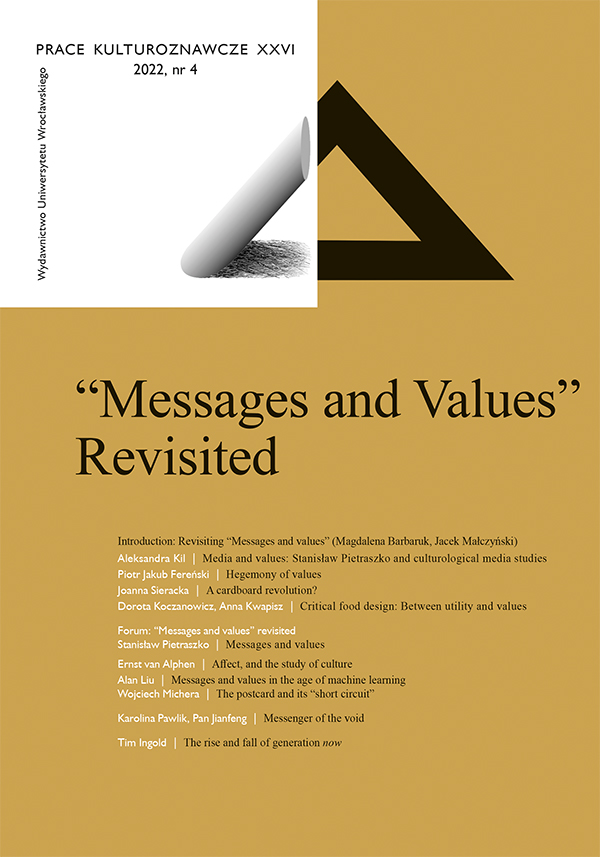


In this issue of Prace Kulturoznawcze, we revisit the concept of culture proposed by Stanisław Pietraszko, our intellectual “ancestor” and the founder of Poland’s first academic hub of cultural-studies research at the University of Wrocław in 1972.
The papers included in the first part of the volume attempt to revisit and reinterpret Pietraszko’s article “Messages and values” in the context of contemporary humanities. Aleksandra Kil adopts the perspective of what she calls cultural mediology of the humanities in order to scrutinise Pietraszko’s archives and offer a refined, in-depth reading of “Messages and values” by analysing his collection of index cards. Piotr Jakub Fereński’s article is an effort to supplement Pietraszko’s framework with Antonio Gramsci’s concept of cultural hegemony. Joanna Sieracka looks for the values by analysing placards that flooded Polish streets during protests in defence of women’s rights in 2020. The article co-authored by Dorota Koczanowicz and Anna Kwapisz addresses the tension between “uses” and “values”—a relevant issue in Pietraszko’s conception—by investigating recent projects in critical food design.
The volume also includes a forum on “Messages and values,” featuring voices of fellow researchers we invited to participate. Their short texts help look at Pietraszko’s article “from afar,” that is, from a historical, geographical and/or disciplinary distance. Alan Liu ponders what would have happened if Pietraszko had studied social media and their governing algorithms. Ernst van Alphen’s semi-autobiographical commentary discovers Pietraszko as “an affect scholar avant-la-lettre.” Wojciech Michera believes that Pietraszko’s proposal may encourage a more comprehensive study of postcards, including relations between their texts, visual layers and the social context.
The volume includes also Karolina Pawlik’s interview with Chinese artist Pan Jianfeng, whose work relies on the tradition of Chinese calligraphy.
The volume is capped by Tim Ingold’s keynote address “The rise and fall of generation now,” delivered at the Futures of Culture: Genealogies, Imaginaries, Actions, the 4th Congress of the Polish Association of Cultural Studies held as part of the 50th anniversary of the Institute of Cultural Studies at the University of Wrocław.